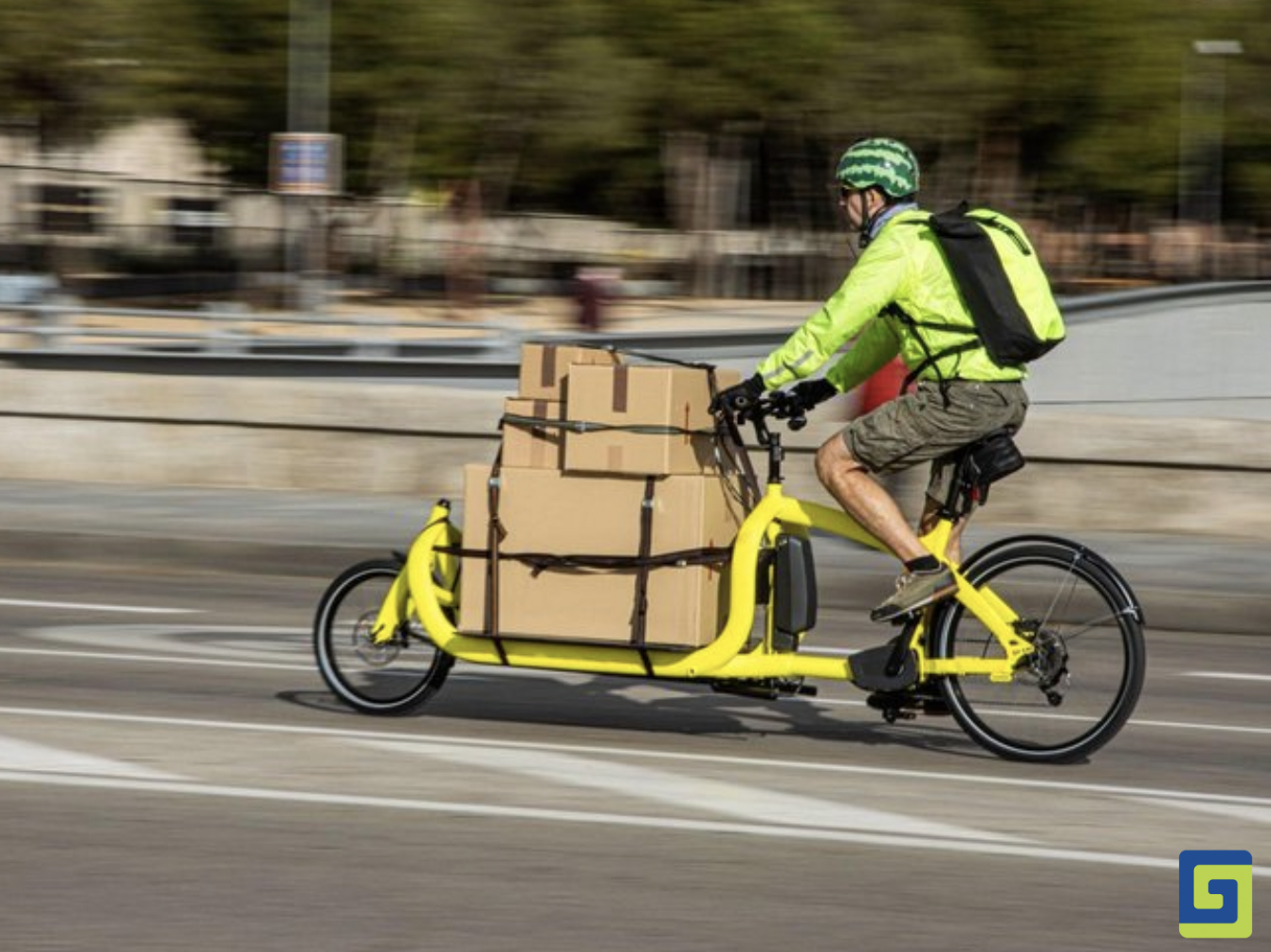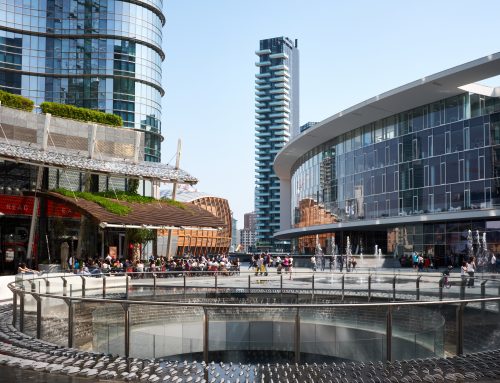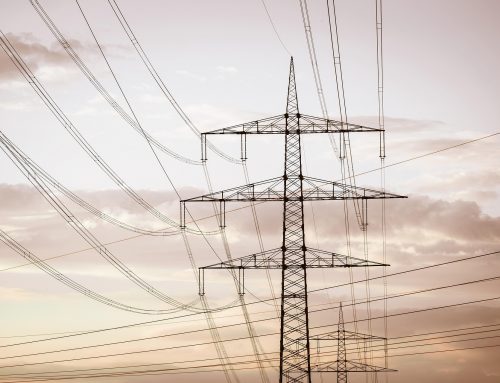In urban circuits, the bicycle designed to transport parcels was more functional and faster than vans: here is the study.
They are called cargo bikes and are those bicycles, or tricycles/quadricycles, which have been designed with a specific purpose, that of carrying loads of different sizes and weights. They are certainly not a recent invention: conceived at the end of the 19th century to facilitate the handling of goods, today they are back in vogue also thanks to new light materials, captivating designs, for safety and comfort, being also cargo bikes electric.
In Europe, especially in the North, electric cargo bikes are depopulating thanks also to numerous projects for the adoption and development of this rechargeable two-wheeler. The question therefore arises spontaneously: could electric cargo bikes replace vans in cities? It would undoubtedly be an attractive alternative, respecting urban circuits and the people who live there, but would this method be functional? Some have conducted a study: “The promise of Low-Carbon Freight“, published by the NGO Possible and drawn up in collaboration between the University of Westminster and the cycling logistics company PedalMe.
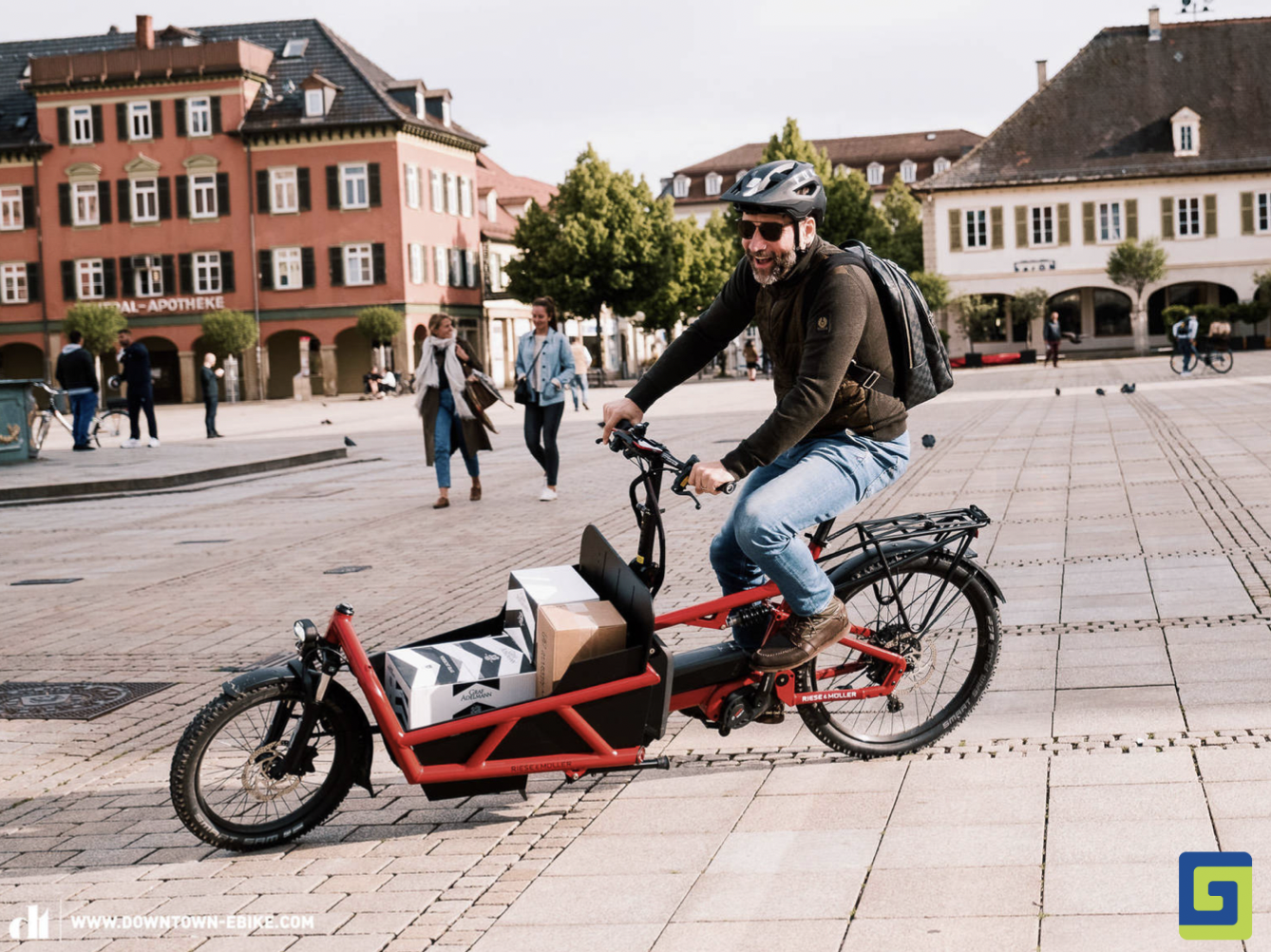
More deliveries and less pollution
The scholars examined “a sample of 928 delivery rounds carried out in London over 98 days between June 2020 and February 2021, only aboard pedal-assisted cargo bikes. These deliveries took 1,680 hours for 16,450 km travelled, with an average speed including delivery stops of 10 km/h. The scholars have also simulated an alternative scenario with the use of vans instead of cargo bikes. According to the hypotheses of the researchers, making the same sections with motor vehicles would have covered 9,950 km more, taking 1,097 additional hours”.
Electric cargo bikes would therefore be very competitive compared to vans: “As regards delivery numbers, including stops, for transport bikes it is possible to make 7 deliveries in an hour against 4 for pickup trucks”. Furthermore, according to scholars “the load capacity of motor vehicles does not consist in a greater efficiency in the delivery phase. When it comes to city journeys, the maximum speed of a van is not useful, in fact the vehicles find themselves having to travel longer and more convoluted routes to get around one-way streets, limited traffic areas and possible detours, so they are forced to use more time to reach the point of arrival and then having to find a parking space and then also travel on foot”.
In terms of pollution, what would be the impact if vans were replaced in city circuits with fleets of electric cargo bikes? “By calculating the energy needed to recharge the e-cargo bikes and power the couriers, CO2 emissions would increase by 3,972 kg in the 98-day experiment. If the entire motorized fleet were converted to diesel vans for one year, an extra 14.5 tonnes of CO2 would be emitted into the atmosphere. The cycle logistics model in Europe and in Italy works because it finds in the electric cargo bikes the most suitable means of transport for the context and for the purpose: a van, designed to go at high speed on motorways and slip roads, is badly suited to the centers urban. Cargo bikes, more agile and versatile in the city, can lighten the work of vans, optimize the logistics chain and create new business and employment opportunities”.
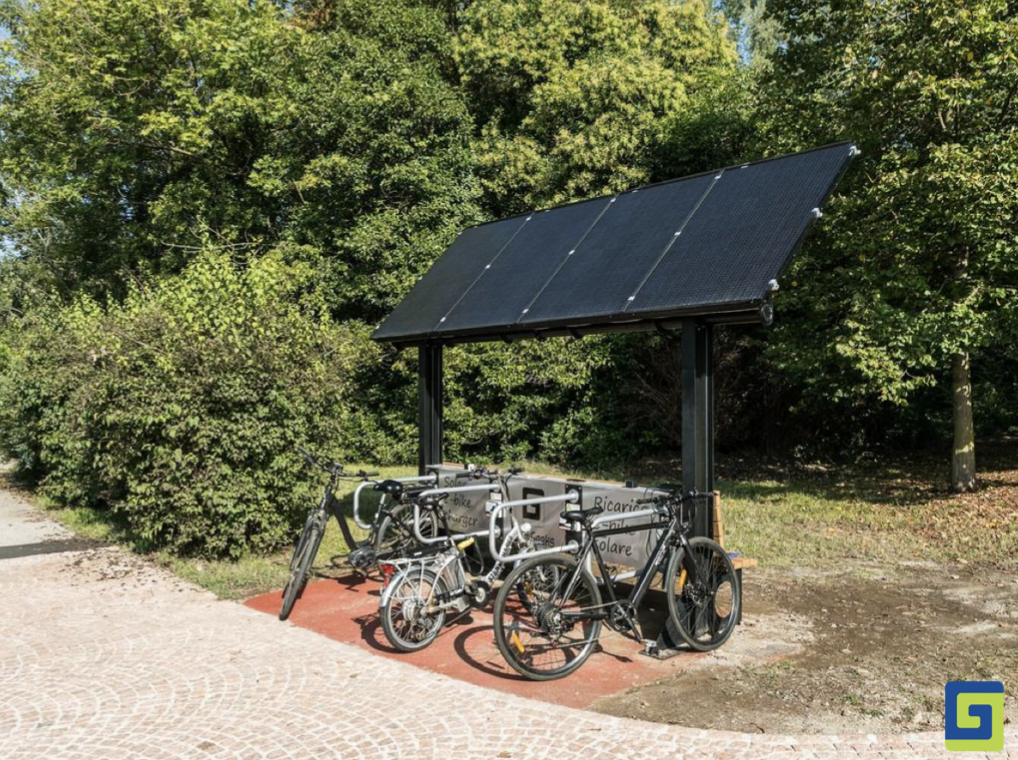
The solutions by GaraGeeks
GaraGeeks offers two solutions that can make electric cargo bike transport even more functional. The Stop&Charge Shelter is a 100% solar energy recharging shelter for bicycles, scooters and electric wheelchairs that does not require excavation or connections to the public electricity grid. Perfect along cycle paths or off-piste routes in the hills or mountains to encourage city micro-mobility, cycle commuting and cycle tourism, it is equipped with a bench and smartphone charging points and Wi-Fi internet access. Perfect in the city to facilitate the work of two-wheeled couriers, Shelter increases the autonomy of e-bikes, reduces anxiety about flat batteries and thus allows longer and more frequent journeys.
Stop&Charge Solar 2.0, on the other hand, can make cycle paths smarter and safer. It is a 100% solar energy charging station, a multifunctional tool with video surveillance and emergency call button, it also monitors the air quality, it does not require connections to the public electricity grid. It can also recharge smartphones, e-bikes and other vehicles up to 300W, have a large information surface, have Wi-Fi internet access, also configuring itself as an illuminated reference point for those traveling along the cycle paths. Solar 2.0 is made with durable materials such as stainless steel, birch wood and Corian and the supply chain is 100% Italian. By acquiring Stop&Charge Shelter and Stop&Charge Solar 2.0 by GaraGeeks, citizens are offered an important service: companies, Municipalities, Public Administrations and institutions can do it also thanks to the calls for funding periodically made available to benefit from economic support and concessions.
Do you want to find out more about GaraGeeks and products for environmental sustainability? Contac us.

